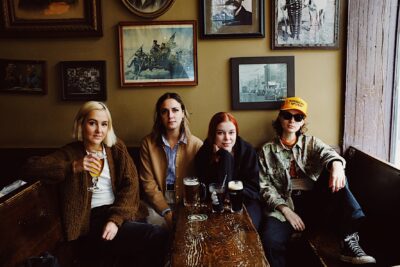"Brooklyn - Prospect Park: Lefferts Homestead" by wallyg is licensed with CC BY-NC-ND 2.0
Lefferts Historic House restoration will include a reckoning with its past
The $2.5 million makeover kicks off with a Juneteenth celebration—and begins a dialogue about the house's historic ties to slavery
The Prospect Park Alliance will be breaking ground on a $2.5 million restoration of the Lefferts Historic House in the park Friday at noon as part of a sweeping reorientation of the historic site’s mission.
The event will be tied to Juneteenth festivities this weekend, and as part of the the renaming project, the event will include the dedication of the area across from Lefferts as “Juneteenth Way.”
To celebrate the new name, a string of benches along the walkway on what will now be called Juneteenth Way will be painted in the black, red, and green colors of the Pan-African flag . The event also marks the debut of “Jamel Shabazz: Prospect Park, My Oasis in Brooklyn,” a specific photography installation that documents “the people and places that truly make the park Brooklyn’s Backyard.”
These gestures mark an attempt by the alliance to come to terms with troubling aspects of the 238-year-old house’s history, including likely ties to slavery. The construction of the house, around 1783, was overseen by Paul Lefferts who had served in the Flatbush militia in 1776 and as a delegate to the New York Constitutional Convention. “He and his family owned a significant portion of what we now call central Brooklyn and were one of the largest slaveholding clans in Kings County, breadbasket to New York City,” write David Tipson and Kelly Bare in this 2020 New York Daily News opinion piece.
The house itself had originally been the centerpiece of a 240-acre farm in Flatbush but was moved to the park in 1918 and served as a celebration of New York’s immigrant community.
The restoration project, first approved by the city council in 2016, is focused on replacing the roof of the building, giving the Lefferts House a new coat of paint, repairing paths, and fixing up the landscaping. While restoration takes place, and the house remains closed, the Prospect Park Alliance will be “re-envisioning the museum’s mission and programming to strengthen its focus on the history and culture of the Flatbush community.” This will include a strong focus on the lives of enslaved Africans that lived and worked at Lefferts house and the Lenape native Americans who resided on the land of the Lefferts house before Dutch settlers colonized it.
Previous family-oriented programming at the house had been silent on the enslavement of Africans in New York. The Prospect Park Alliance will partner with local historians, researchers, and community leaders to create new, exciting programming that can “re-imagine the purpose of a historic house, and how it can shed light on the experiences of our ancestors, but also serve as a community hub and a space for dialogue in today’s Brooklyn.”
You might also like 


























